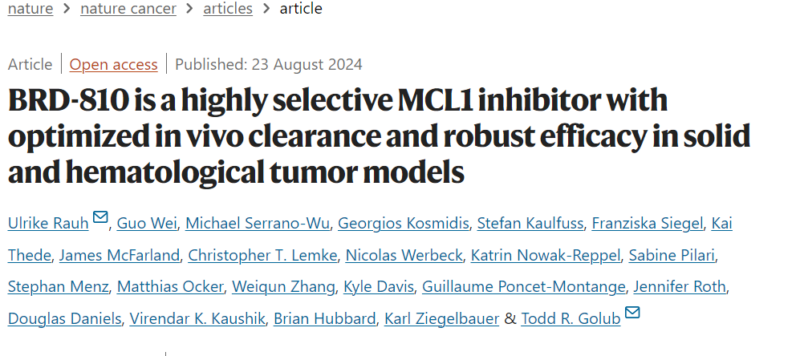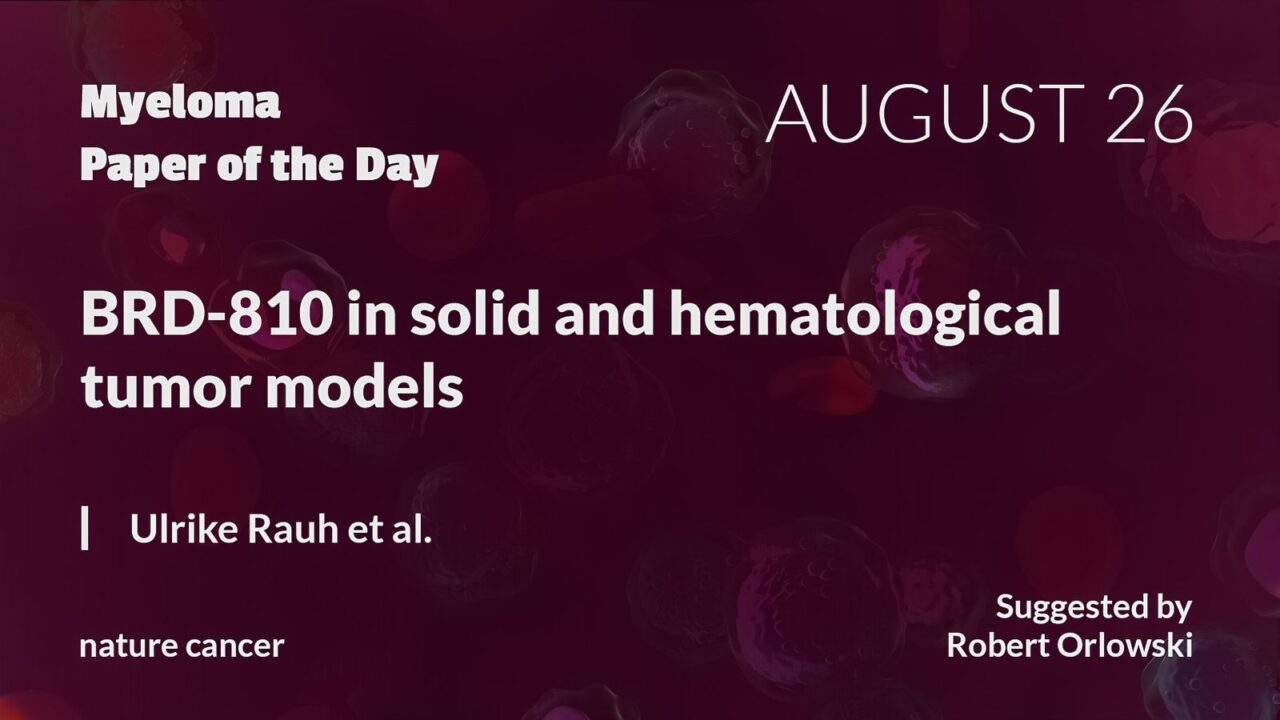Robert Z. Orlowski shared a post on X:
“Myeloma Paper of the Day: Novel highly selective MCL1 inhibitor BRD-810 with optimized in vivo clearance shows robust efficacy in solid and heme lab models, including myeloma, but clinical trials of prior MCL1 inhibitors showed cardiac troponin leak.”
Authors: Ulrike Rauh, Guo Wei, Michael Serrano-Wu, Georgios Kosmidis, Stefan Kaulfuss, Franziska Siegel, Kai Thede, James McFarland, Christopher T Lemke, Nicolas Werbeck, Katrin Nowak-Reppel, Sabine Pilari, Stephan Menz, Matthias Ocker, Weiqun Zhang, Kyle Davis, Guillaume Poncet-Montange, Jennifer Roth, Douglas Daniels, Virendar K Kaushik, Brian Hubbard, Karl Ziegelbauer, and Todd R Golub.

Source: Robert Z. Orlowski/X
Robert Orlowski, M.D., Ph.D., holds multiple positions at The University of Texas MD Anderson Cancer Center, including Chairman, Ad Interim Director of Myeloma, and Professor of Medicine in the Departments of Lymphoma/Myeloma and Experimental Therapeutics within the Division of Cancer Medicine. Additionally, he chairs the SWOG Barlogie/Salmon Myeloma Committee, which is part of the National Clinical Trials Network, dedicated to advancing new therapies and understanding the biology of myeloma.
Dr. Orlowski’s expertise lies in both clinical practice and scientific research, with a particular focus on translating laboratory discoveries into effective treatments for patients. He investigates drug resistance mechanisms in myeloma and seeks to identify predictive biomarkers for treatment response. Notably, his past contributions include leadership roles in developing proteasome inhibitors like bortezomib and carfilzomib, as well as monoclonal antibodies such as daratumumab and elotuzumab.


